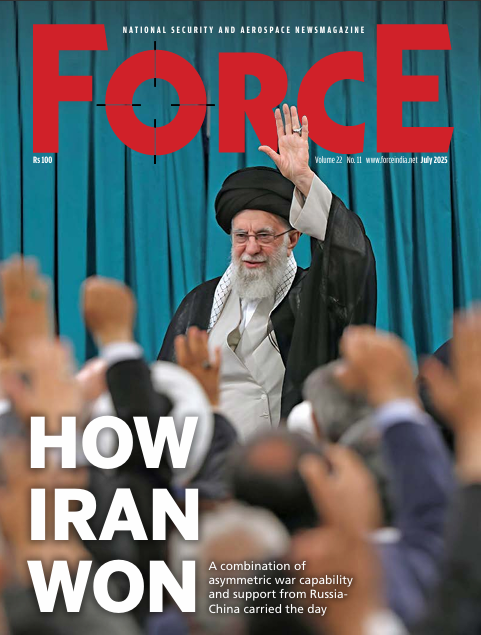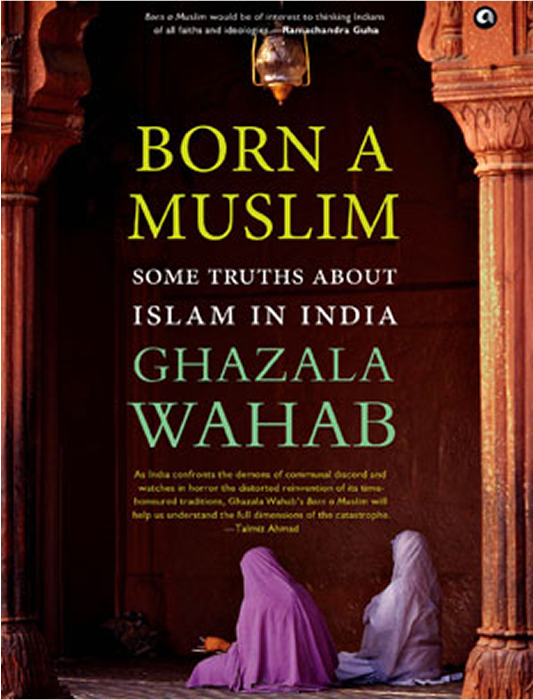First Person | Modi’s Choice
Ghazala Wahab
Cling to the ideology he grew up with, or turn the geopolitical opportunity to his advantage
At the last week’s Shanghai
Cooperation Organisation’s (SCO’s) defence ministers’ conclave in Qingdao,
China, Indian defence minister Rajnath Singh refused to sign the joint
statement, which was endorsed by all other participating nations. Thereafter, in
a series of posts on X, Singh explained India’s reason for not signing the
statement.
The essence of his explanation was calling out the double standards of
the member states, who accept one kind of terrorist violence—the statement
mentioned the militant violence in Pakistan’s Balochistan province, which the
country blames on India—but not the kind India has been raising its voice
against—Pakistan-orchestrated terrorism in Kashmir. According to Singh, this
was even more shocking given the recent massacre of civilians in Kashmir’s
Baisaran valley, which India insists was carried out by The Resistance Front
(TRF), a proxy of Pakistan based Lashkar-e-Taiba, a United Nations-designated
terrorist group.
In a media interaction, the spokesperson for the ministry of external
affairs, Randhir Jaiswal said that only one country, insinuating Pakistan, had
a problem with the inclusion of the Pahalgam attack in the joint statement.
Yet, strangely, the member nations were mindful of that one nation’s concerns
over India’s. Could this be the consequence of India’s diminishing engagement
within SCO? After all, India did distance itself from the SCO statement
condemning Israel’s unprovoked attack on Iran. Worse, India advised Iran to
exercise restraint, quite like the US and other west European countries.
Or could it be that SCO, like many other countries including the US, do
not see the Kashmir issue in the way India wants them to see--that the only
problem in Kashmir is terrorism sponsored by Pakistan. A few days after the SCO
fiasco, at the Quad foreign ministers meeting in the US, the participating
ministers condemned the Baisaran attack, but did not link it to Pakistan. The
Quad, by the way, is the basket in which India has placed its entire poultry
farm at the cost of its commitments to SCO and its big sister BRICS. Remember, going
against the BRICS sentiment, India had said it will continue to trade in dollars
much against the growing consensus on trading in local currencies, because
given its commitment to and dependence on Quad, it cannot be party to
de-dollarisation.
Hence, the sad truth is that for all of India’s exertions, in bilateral
and multilateral forums, most nations do not regard the Kashmir issue as settled.
Given the post 1947 history of Kashmir--the UN resolution, wars between India
and Pakistan, the violent insurgency since 1989 and the active backchannel
talks between the two sides during 2004-2008--the world still regards Kashmir
as an unresolved matter between two nuclear-armed nations. This is the reason
that when India brings up terrorism in Kashmir, the world sees it as part of a dispute;
repeatedly tempting the US President Donald Trump to offer mediation.
Another evidence of how the world responds to India’s assertions on
terrorism is the much-touted proscription of Lashkar-e-Taiba and Jaish-e-Mohammed
by the UN. While the Jaish was listed in 2001 for its support to al-Qaeda and
Osama bin Laden, Lashkar was listed in 2005 for the same reason, with
subsequent activities including the Mumbai terrorist attack of 2008. Clearly,
this happened because of the US’ Global War on Terrorism anchored in
Afghanistan. The UN sanction list does not refer to their terrorist activities
in Kashmir.
India insists that whatever remained of the ‘issue’ in Kashmir was
resolved in August 2019, when Articles 370 and 35A were revoked by the
government and endorsed by the Parliament. Since then, the government has been
showcasing this ‘resolution’ and the consequent ‘normalcy’ in Kashmir through
tourist numbers and promise of future investments.
However, despite this effort, shutting down of dissenting voices on
Kashmir is taking a toll at India’s global standing—something very dear to the
Prime Minister and his core vote bank, which views him as a world leader--someone
the globe defers to and consults on critical matters.
But Kashmir is isolating India from the world, after having isolated it
in its neighbourhood. The roots of India-Pakistan animosity are planted in Kashmir.
This animosity demands that India’s South Asian neighbours take sides between
the two countries. The result of this diplomatic obstinacy has been that
despite its common history, and linguistic, cultural and culinary congruity,
South Asia remains amongst the most divided regions in the world. Worse,
despite sharing borders with each of its neighbours, India’s engagement with
them remains abysmal. Hence, despite coming into existence almost 40 years
after India’s independence, the South Asian Association for Regional
Cooperation (SAARC) unravelled within two decades.
Now media reports suggest that China and Pakistan are discussing the
possibility of a new South Asian compact. Whatever shape this compact takes, it
will certainly not have India. Shorn of India-Pakistan tension, and with China
steering it, it is likely to see rapid progress as it will be an adjunct to latter’s
Belt and Road Initiative (BRI).
SAARC aside, SCO, BRICS and Quad, refuses to accept India’s arguments on
Kashmir, circumscribing both its global standing and influence. Having harped
on it for over 10 years with the same results, shouldn’t the Modi government
try something different? The previous governments could not take a
revolutionary position on peace with Pakistan and China through Kashmir because
of their weak mandate. The back-channel India-Pakistan conversation during
Prime Minister Manmohan Singh’s tenure would have hit a roadblock even without the
unravelling of President Musharraf’s regime, because neither Singh’s government
had a powerful mandate nor his personality the force to command people to
accept everything he did.
Prime Minister Modi has hypnotised the people of India. In his first
term, he sold demonetisation as being beneficial to the people and in the
second term he convinced the voters that the loss of life during the Covid-19
mismanagement was an illusion. Surely, he can sell peace with Pakistan and
China, especially when this peace will accrue both geopolitical and economic
benefits for the nation and enhance his global stature as a leader bold enough
to shrug off the historical baggage. All it needs is a conversation on Kashmir.
Who knows the prize at the end of the tunnel could even be a Nobel! So, cling
to the ideology he grew up with, or turn the geopolitical opportunity to his
advantage. The choice is his.
Subscribe To Force
Fuel Fearless Journalism with Your Yearly Subscription
SUBSCRIBE NOW
We don’t tell you how to do your job…
But we put the environment in which you do your job in perspective, so that when you step out you do so with the complete picture.








